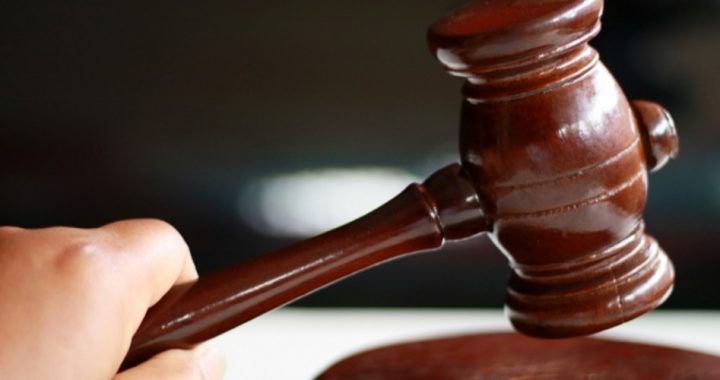
Senior United States District Judge for the Western District of Washington James Robart issued an order on December 23 that granted a nationwide injunction partially lifting a Trump administration ban on refugees from 11 countries where terrorist activity has been high. The order also partially blocks the administration’s restrictions on the process of reuniting refugee families from those nations.
This latest action is a continuation of a non-stop series of similar blocking tactics by federal judges against the administration’s efforts to protect the nation from terrorist activities by foreign nationals admitted to the United States. The first such action occurred shortly after Trump took office, when on January 28 U.S. District Court Judge Ann Donnelly of the Eastern District of New York in Brooklyn ruled in favor of a petition filed by the ACLU on behalf of two Iraqi men who were detained at John F. Kennedy International Airport the previous day under Trump’s executive order.
Subsequently, judges in other federal district courts in Massachusetts, Virginia, and Washington issued similar rulings.
Robart ordered the federal government to process certain refugee applications for people “with a bona fide relationship to a person or entity within the United States.” He said that for refugees to have formal agreements with refugee resettlement agencies or humanitarian organizations constitutes such a relationship.
The day before issuing his ruling, Robart heard arguments in lawsuits from the American Civil Liberties Union and Jewish Family Service, which asserted that the administration’s ban caused irreparable harm and put some people at risk. Government lawyers argued that the ban is needed to protect national security.
The ACLU sued the administration on behalf of a Somali man, using the pseudonym Joseph Doe, who has spent years attempting to bring his wife and children to his home in Washington State. The ACLU case was consolidated with one filed by Jewish Family Service, which challenged the administration’s prohibition of refugees from certain countries until the vetting process could be reviewed. It might be considered rather strange by many people that Jewish Family Service lawyers would take up this case, considering the opponents of the ban have claimed that is discriminates against Muslims in the Middle East — whom many people consider to be arch enemies of the Jewish state of Israel.
An Associated Press report said that August Flentje, a Justice Department attorney, argued in the December 22 hearing that the ban is temporary and “is a reasonable and appropriate way for agency heads to tackle gaps” in the screening process. The DOJ said that the restrictions were placed in the interest of national security.
However, ACLU and Jewish Family Service lawyers asserted that the process for implementing the ban violated the law.
A December 23 Bloomberg report noted that a worldwide suspension of refugee admissions was included in earlier versions of President Trump’s executive orders that had been blocked by judges until the Supreme Court ruled in June that the restrictions could be enforced for immigrants lacking “bona fide relationships” to the United States.
In our article on September 25, we reported that Trump signed a proclamation for a revised ban just hours before his previous travel ban was set to expire. A statement posted on the White House website on September 24 explained the latest proclamation, noting, “This action to protect our national security builds on Executive Order 13780, which President Trump signed in March.”
The new version limited the immigrant and nonimmigrant entry into the United States from eight countries and continues the ban on immigration from five of the six countries in the previous ban: Iran, Libya, Syria, Yemen, and Somalia. It also adds three new countries to the list: Chad, North Korea, and Venezuela. The proclamation also dropped one country previously named — Sudan. Furthermore, it relaxed restrictions for non-immigrant visitors from Somalia, as well as students and other exchange visitors from Iran.
The new executive order continued the administration’s ban on the entry of spouses and minor children of refugees from the 11 listed countries that have already settled in the United States. These are often referred to as referred to as “follow-to-join” refugees.
Robart said that about 2,500 refugees in the United States will be able to reunite with their families through the “follow-to-join” process.
The AP report quoted a statement from Department of Justice spokeswoman Lauren Ehrsam, who said: “We disagree with the Court”s ruling and are currently evaluating the next steps.”
The day before Trump issued the executive order, Secretary of State Rex Tillerson, Acting Homeland Security Secretary Elaine Duke, and Director of National Intelligence Daniel Coats sent a memo to the president stating that certain refugees must be banned unless additional security measures are implemented.
In it’s lawsuit against the administration, the ACLU argued that the memo provided no evidence for why additional security was needed and didn’t specify a timeframe for implementing the changes. The two plaintiffs asserted that the process for imposing the policy violated a federal law.
The 11-nation refugee ban (which covers Egypt, Iran, Iraq, Libya, Mali, Somalia, Sudan, Syria, Yemen, South Sudan and North Korea) is a separate executive order from the administration’s suspension on travel from six majority-Muslim countries. Those nations are Iran, Libya, Syria, Yemen, Somalia, and Chad. The Supreme Court on December 4 granted a stay of the October rulings by two lower courts that had blocked the Trump administration from enforcing its suspension on travel from those countries.
The High Court’s decision stays the previous lower court rulings against the administration until a ruling is made on the administration’s appeal in the United States Court of Appeals for the Fourth Circuit in Richmond, Virginia. The decision states: “In light of its decision to consider the case on an expedited basis, we expect that the Court of Appeals will render its decision with appropriate dispatch.”
The Supreme Court’s December 4 stay continues a pattern where the High Court has tended to regard the Trump administration’s efforts to prevent potential terrorist from entering the country more favorably than some of the lower federal courts.
Quick resolutions by the appellate courts would allow the Supreme Court to hear and decide the issue during the present term, by the end of June.
We shall also have to see if the administration manages to appeal Robart’s decision and gain a reinstatement of its immigration policies.
Photo: JokoHarismoyo/iStock /Getty Images Plus
Related articles:
Globalists Who Created Refugee Crisis Now Exploiting It
Supreme Court Dismisses One of Two Trump Travel Ban Cases
Trump Proclaims New Travel Ban, Adds Three New Countries, Including North Korea
Supreme Court Justice Stays Appeals Court Ruling Limiting Trump Travel Ban
Trump Travel Ban Unconstitutional? But Obama, Bush, Carter Travel Bans Constitutional?
Hawaii’s Judge Watson Loosens Trump Travel Ban
Supreme Court Allows Most of Trump Travel Ban to Proceed, Will Hear Case in Fall
Ninth Circuit Court Rules Against Travel Ban, but Trump Fires Back
Trump’s DOJ Submitted “Watered Down” Version of His Travel Ban to Supreme Court
Trump Administration Asks SCOTUS to Rule on “Travel Ban”
9th Circuit Court Considers Appeal of Judge’s Order Against Trump Travel Ban
Federal Judge Upholds Trump Travel Ban Blocked by Other Courts
Federal Judges Again Block Trump Travel Ban From Nations With Terrorist Ties
Trump Signs New Immigration Executive Order
Judge Grants Stay to Bar Trump DHS From Deporting Aliens From Seven Nations of Concern
Trump’s Order Suspending Refugee Program: Racism or Balanced National Security?
Trump Executive Order to Ban Nationals of “Countries of Particular Concern”



